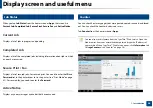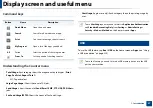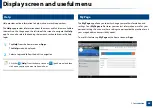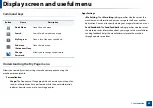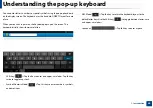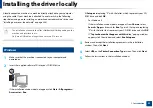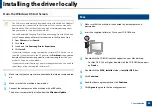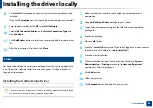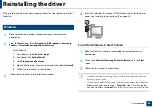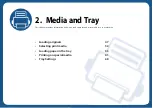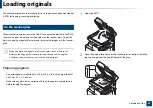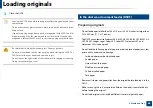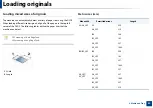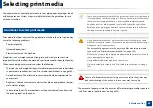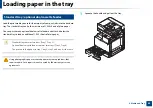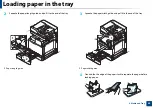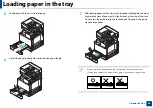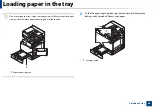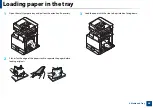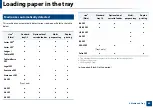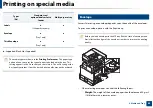
Loading originals
48
2. Media and Tray
3
Close the DSDF.
•
Leaving the DSDF open while copying may affect copy quality and toner
consumption.
•
Dust on the scanner glass may cause black spots on the printout. Always
keep it clean.
•
If you are copying a page from a book or magazine, lift the DSDF until its
hinges are caught by the stopper and then close the lid. If the book or
magazine is thicker than 30 mm (1 inch), start copying with the lid open.
•
Be careful not to break the scanner glass. You may get hurt.
•
Do not put your hands on the scanner glass when closing the DSDF. The
DSDF may fall on your hands and cause an injury.
•
Do not look at the light inside of the scanner while copying or scanning.
Doing so may harm your eyes.
2
In the dual scan document feeder (DSDF)
Preparing originals
•
Do not load paper smaller than 148 x 210 mm (5.9 x 8.3 inches) or larger than
297 x 432 mm (11.7 x 17 inches).
•
The DSDF can automatically detect A3, A4 LEF, A4 SEF, B4, B5 LEF, B5 SEF, A5
LEF, A5 SEF, Ledger, Legal, Letter LEF, Letter SEF, Statement LEF, and
Statement SEF-sized originals.
•
Do not load the following types of paper in order to prevent paper jams, low
print quality, and machine damage:
-
Carbon paper or carbon-backed paper
-
Coated paper
-
Onion skin or thin paper
-
Wrinkled or creased paper
-
Curled or rolled paper
-
Torn paper
•
Remove all staples and paper clips from the original before loading it in the
DSDF.
•
Make sure any glue, ink, or correction fluid on the paper is completely dry
before loading the original.
•
Do not load originals that include different sizes or weights of paper.



